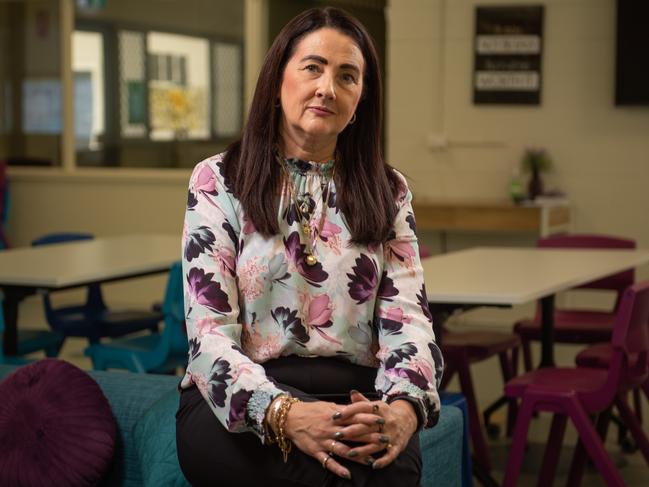DV Qld: Domestic, sexual abuse scars can last a lifetime
There is a fresh push for support for domestic and sexual abuse recovery, that for many victims can be a lifetime journey.
Police & Courts
Don't miss out on the headlines from Police & Courts. Followed categories will be added to My News.
More needs to be done to help survivors of domestic, family and sexual violence recover from deeply traumatic and life-changing events, say advocates.
Queenslanders Carolyn Robinson, who founded advocacy group Beyond DV, and domestic violence survivor Samantha Cooper have joined a growing chorus of experts across the country to push for ongoing support to help women and children navigate life following instances of domestic, family and sexual violence.
The newly founded Australian Domestic, Family and Sexual Recovery Alliance, spearheaded by Rosie Batty AO, brings survivors and experts together to highlight the necessity for more education and funding in the recovery space.
Ms Batty said recovery for survivors can be a lifelong journey.
“It is unique, it is complex, it is individual,” she said at the online launch of the alliance.
The work of organisations like Beyond DV – founded by Ms Robinson in 2017 after her first-hand experience of supporting a loved one through a domestic violence situation – will prove crucial to the alliance.
“High-quality long-term support has made all the difference in the lives of so many of the women we have supported,” Ms Robinson said.
“Many are still engaged with us years after they left abuse.

“It is comforting for them to know that we will always be there, should there be a bump in the road for themselves or their children.”
On average, one woman is killed as a result of domestic or family violence in Australia each week, while one in four women over the age of 15 will be impacted by intimate partner violence at least once in their lifetime.
And shockingly, Australian Institute of Health and Welfare research shows three out of every 10 hospitalisations is as a result of domestic or family violence.
Work conducted by the DFSV Recovery Alliance believes better recovery services could hold the key to stopping DFSV before it starts.
“If we provide appropriate support to women during recovery, they are less likely to return to their abuser and are less likely to enter into a new abusive relationship,” Ms Robinson said.
“If we provide appropriate support to children and young people during their recovery, they are less likely to enter into abusive relationships, as perpetrators or victims, when they become adults.”
Survivor Samantha Cooper said it was the work of women and communities, such as the alliance, that would help women and children heal.
“I wish someone had sat with me … and told me this wasn’t my fault, that the bruises and the broken bones would heal but the lessons I had learned for survival were not healthy,” she said.
More information at dfsvrecovery.com.au




